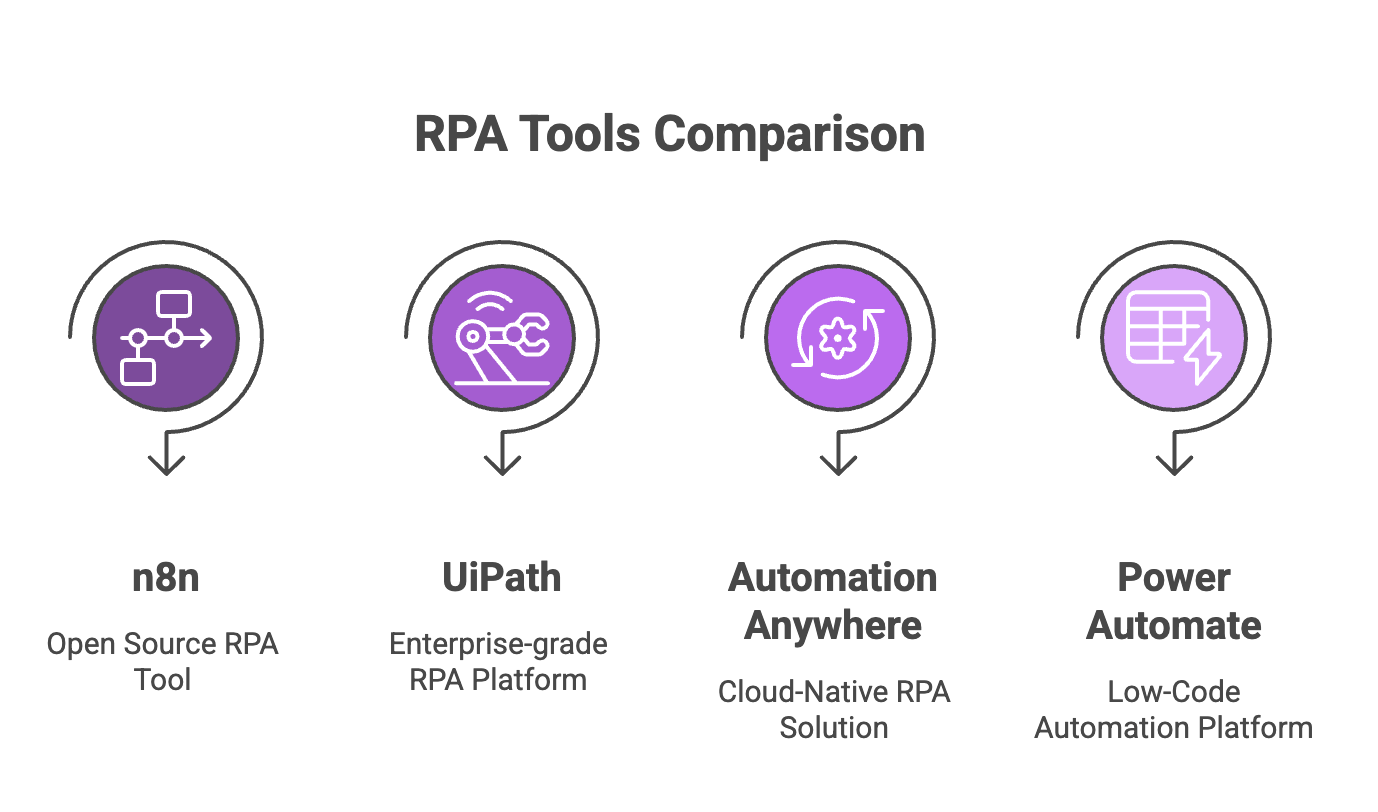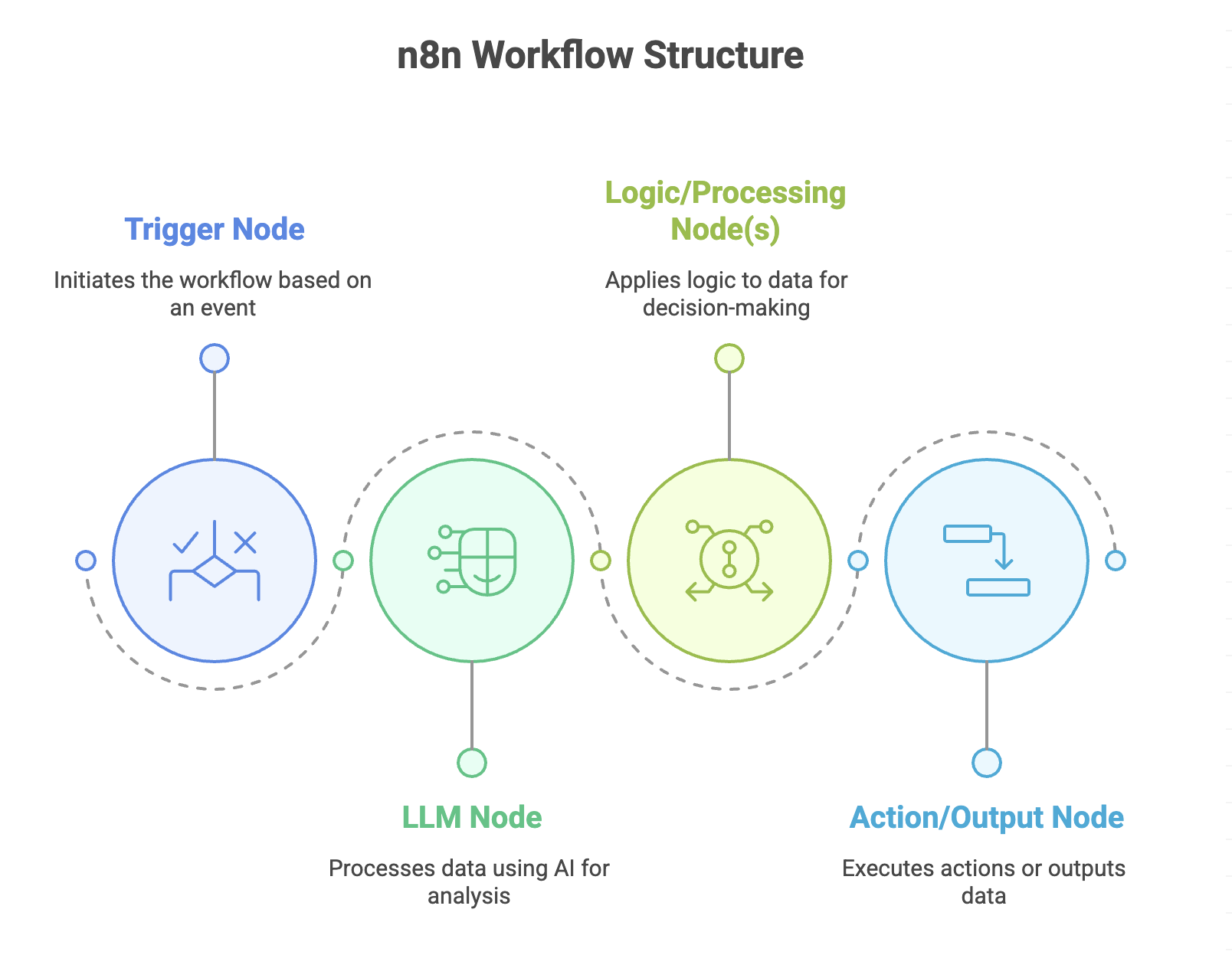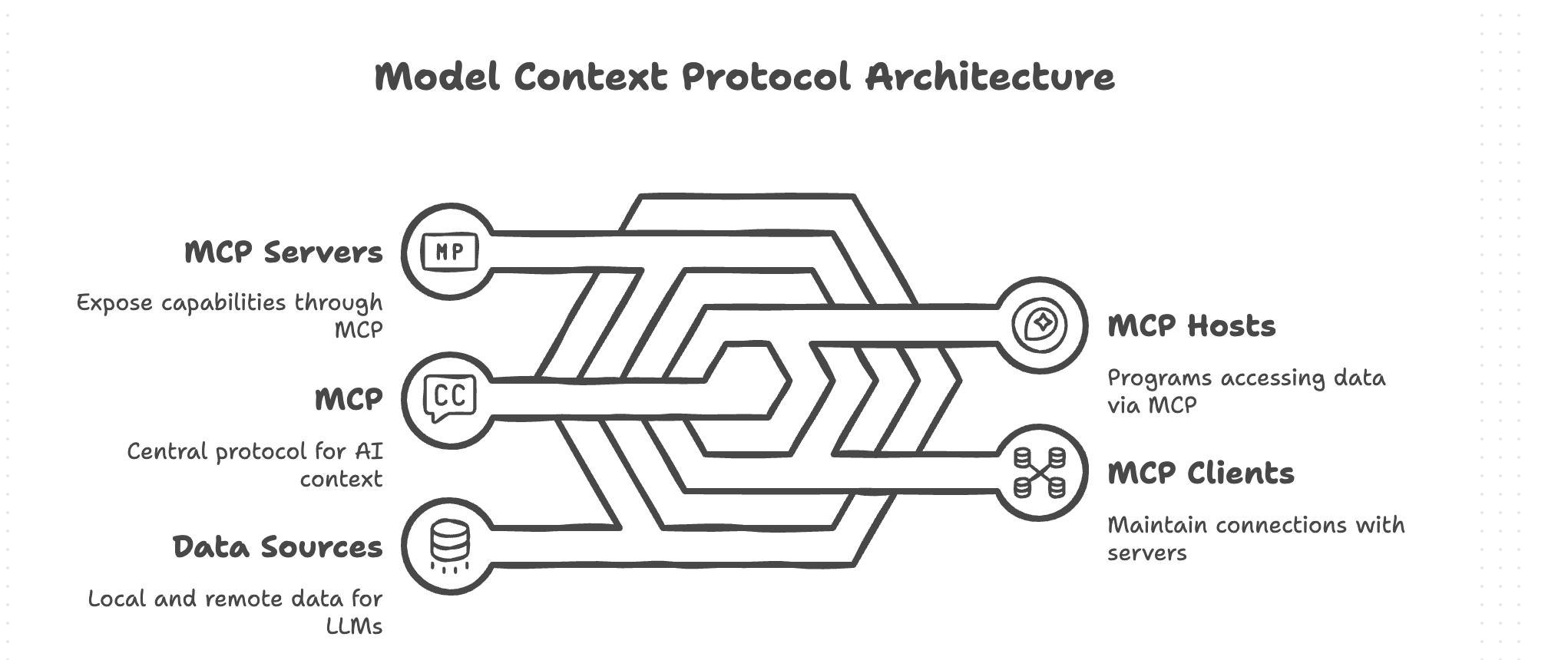The Rise of Modern RPA Tools and the Role of n8n with AI Agents
RPA tools in 2025 go beyond repetitive task automation. Platforms like n8n and UiPath now integrate AI and serve as key infrastructure for intelligent, automation-first applications. This article explores the evolution of RPA and the emerging role of AI agents in platforms like n8n.

Robotic Process Automation (RPA) tools have significantly evolved over the past decade. In 2025, these tools are no longer limited to rule-based task automation; they are now essential components of intelligent, data-driven operations. Platforms like n8n, UiPath, Automation Anywhere, and Microsoft Power Automate are embracing AI integrations, open standards, and user-centric design to meet modern enterprise needs.
RPA in 2025: Beyond Repetitive Tasks
The traditional promise of RPA was cost savings through automation of repetitive work. Today, that promise has expanded. With AI integrations, RPA tools now handle:
- Dynamic decision-making
- Document understanding
- Human-in-the-loop processes
- API-based orchestration of SaaS tools
This shift marks the emergence of intelligent automation, blending automation with learning and adaptation.
n8n: From Workflow Automation to Intelligent Infrastructure
Among open-source tools, n8n has emerged as a major player. Originally positioned as a visual workflow builder, n8n has evolved into a Multi Capability Platform (MCP)—a flexible infrastructure layer for developers and teams building automation-first applications.
Recent Highlights
- Successfully raised multiple funding rounds since 2023.
- Expanded enterprise offerings with hosted and hybrid deployment models.
- Integrated AI services (OpenAI, Hugging Face, Cohere) directly into workflows.
- Gained strong traction in startups and developer communities due to its transparency, extensibility, and active community.
AI Agents + n8n: A New Automation Paradigm
The integration of AI agents into RPA workflows is no longer experimental. n8n allows developers to seamlessly embed AI into automation pipelines, enabling use cases such as:
Example Use Cases
Smart Email Routing
- AI analyzes subject, tone, and intent.
- Emails are tagged and routed to the appropriate department or CRM system.
Restaurant Experience Feed
- Users submit photos and feedback.
- n8n orchestrates AI-powered tagging, moderation, and location-aware feed curation.
Document Processing
- Users upload invoices or contracts.
- Workflows use AI to extract relevant fields and send data to ERP or databases.

Comparative Market Position
| Platform | Open Source | AI Integration | Enterprise Support | Extensibility |
|---|---|---|---|---|
| n8n | Yes | Full | Yes | High |
| UiPath | No | Strong | Yes | Medium |
| Automation Anywhere | No | Strong | Yes | Medium |
| Power Automate | No | Limited | Yes | Low |
n8n stands out as a developer-first, modular, and open platform, appealing especially to tech-driven teams looking for full control over their automation architecture.
The MCP Vision: More Than Automation
n8n’s shift toward being a Multi Capability Platform (MCP) brings with it:
- Built-in authentication, scheduling, triggers, and logic branching.
- Agent-based extensions using AI or external APIs.
- A foundation for building automation-first applications, not just workflows.

Conclusion
The RPA ecosystem is maturing into a broader automation intelligence market. n8n’s evolution from open-source project to enterprise-grade platform reflects this transformation. With built-in AI agent support and flexible workflow orchestration, it is redefining how teams approach automation, integration, and innovation.
As organizations continue to adopt intelligent systems, platforms like n8n will become not just tools, but infrastructure layers for next-generation business logic.
Tags: RPA, n8n, AI, Automation, Open Source, Workflow, Digital Transformation